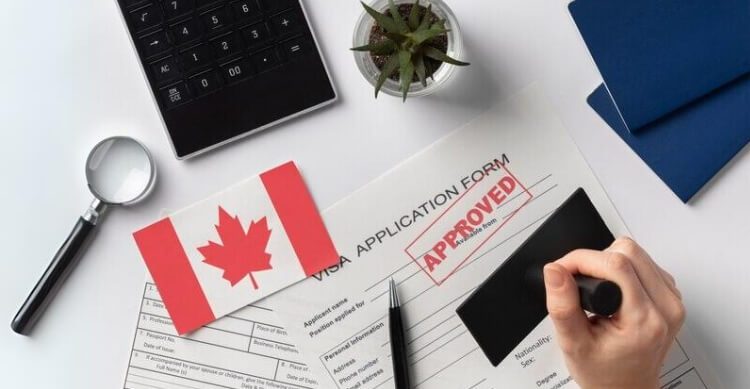Conferences hold immense value for both personal and professional growth. They offer networking opportunities, learning from experts, and gaining new insights. As international conferences continue to gain popularity, Canada has emerged as a sought-after destination.
However, if you’re a US citizen considering attending a conference in Canada, you might wonder, “Do US citizens need a visa to attend a conference in Canada?”
US citizens do not need a visa to attend a conference in Canada. They can generally travel to Canada under visa-exempt status.
Understanding the entry requirements is crucial to ensure a smooth and hassle-free experience. In this blog, we will delve into the specifics of Canadian entry requirements, explore the visa-exempt status for US citizens, and determine whether attending a conference in Canada requires a visa.
So, let’s unravel the intricacies of attending conferences across the border and uncover the answer to this burning question.
Entry Requirements For Visiting Canada As A Foreign Visitor
Before undertaking your journey to attend a conference in Canada, it’s important to familiarize yourself with the country’s entry requirements. In this section, we will provide you with an overview of the Canadian entry requirements for foreign visitors. Explain the concept of a visa and its purpose in regulating entry into a foreign country
Entry Requirements For Foreign Visitors
Canada has specific entry requirements in place for foreign visitors entering the country. These requirements are designed to ensure visitors’ and Canadian residents’ safety and security. Understanding these entry requirements is crucial before planning any travel to Canada.
Purpose And Concept Of Visas In Regulating Entry
Visas are vital in regulating entry into a foreign country like Canada. They serve as official documents issued by the government, granting permission to enter, stay, or work in the country for a specified period. Visas help the government control who enters and remains within its borders.
Types Of Visas For Visiting Canada
When it comes to visiting Canada, various types of visas are available. Two common types include visitor visas and electronic travel authorizations (eTAs). Visitor visas are required for individuals planning a longer stay or engaging in specific activities, while eTAs are electronic documents necessary for visa-exempt travelers.
Exemptions And Special Programs Affecting Entry Requirements
It’s important to note that certain exemptions and special programs affect entry requirements for specific individuals or groups. For instance, citizens of countries with visa-exempt agreements with Canada may not need a visa to enter. Programs like the Trusted Traveler Program or the Temporary Resident Permit also provide alternative entry options for specific circumstances.
Do Us Citizens Need A Visa To Attend A Conference In Canada?
Attending a conference in Canada is an exciting opportunity for US citizens seeking to expand their professional horizons. But do they need a visa to attend a conference in Canada?
The answer is generally no. As mentioned earlier, US citizens benefit from visa-exempt status when visiting Canada. This means they can attend meetings and business-related activities, such as international business conferences in Canada, without a visa. The visa-exempt status simplifies entry and allows US citizens to travel freely to Canada for conference purposes.
However, it’s essential to consider the purpose and duration of your visit. If your stay extends beyond what is typically allowed under visa-exempt status, such as attending a conference for an extended period, you must apply for a visitor visa.
Similarly, a visa may be required if your conference involves specific activities beyond the scope of business meetings, such as paid performances or academic research.
It’s crucial to assess your circumstances and consult the official Canadian government resources to determine whether you need a visa to attend a conference in Canada. The requirements vary based on the nature of the conference, the duration of your stay, and any additional activities you plan to undertake.
Process Of Applying For A Visa As A US Citizen
Navigating the visa application process can seem daunting, but as a US citizen attending a conference in Canada, it’s essential to understand the steps involved. In this section, we will break down the visa application process, providing valuable insights and guidance to ensure a smooth experience.
Online Application And Supporting Documents
As a US citizen, if you need a Temporary Resident Visa (TRV) to visit Canada, you will have to complete an online application. This application requires you to provide personal information, travel details, and supporting documents such as a valid passport, proof of financial means, and any additional documents specific to your visit.
Processing Times And Fees
The processing time for a TRV application can vary, so it’s advisable to apply well before your intended travel dates. Additionally, a non-refundable application fee is associated with the TRV application, which must be paid at the time of submission.
Electronic Travel Authorization (eTA) Application Process
Eligibility Criteria And Required Information
If you are a US citizen flying to Canada and do not require a TRV, you must apply for an Electronic Travel Authorization (eTA). To be eligible for an eTA, you must have a valid passport, provide personal information, and answer questions about your health, criminal history, and travel plans.
Applying Online And Processing Times
The eTA application is completed online, and you will need to pay the required fee. Once submitted, the processing time for an eTA application is usually quick, with most applicants receiving approval within minutes. However, it is advisable to apply well in advance to account for any unforeseen delays.
Tips For A Smooth Conference Experience In Canada
Attending a conference in Canada can be an enriching experience, and to ensure a smooth journey, consider the following tips:
Start The Visa Application Process Well In Advance
Begin the visa application process as early as possible, preferably several months before your planned conference date. This allows sufficient time for any unforeseen delays or additional document requests that may arise during the application process. Adequate time for processing also alleviates unnecessary stress and ensures you can focus on other conference preparations.
Prepare Necessary Supporting Documents And Proof Of Conference Attendance
In addition to writing invitation letters and conference registration confirmation, gather other relevant documents such as a detailed itinerary, proof of accommodation arrangements, and proof of financial means to support your stay.
Providing comprehensive and well-organized supporting documents strengthens your application and helps immigration officers assess the purpose and legitimacy of your visit.
Stay Updated On Any Changes In Visa Requirements
Visa requirements and regulations can undergo revisions or updates, so staying informed about any changes affecting your conference attendance is crucial. Regularly check the official government websites for the most up-to-date information on visa requirements and application processes.
Additionally, consider subscribing to newsletters or notifications from relevant immigration authorities to receive timely updates and ensure you know any new requirements or procedures.
Common Concerns And Frequently Asked Questions
As you prepare for your conference trip to Canada, it’s natural to have certain concerns and questions in mind. Here are some common concerns and frequently asked questions that often arise when attending a conference in Canada. Let’s address them to provide you with the clarity and information you need for a seamless experience.
Can I Attend A Conference On A Tourist Visa?
Generally, attending a conference on a tourist visa is allowed as long as the conference falls within the permissible activities allowed under the tourist visa.
What If My Conference Includes Paid Activities?
If your conference includes paid activities, such as speaking engagements or performances, you need a work permit instead of a visitor visa. Ensure you understand the specific requirements of your situation.
Can I Extend My Stay In Canada After The Conference?
Extending your stay in Canada after the conference is possible, but you must apply for an extension before your current status expires. Consult the appropriate immigration authorities for guidance on the extension process.
Can I Apply For A Visa At The Port Of Entry?
In most cases, you cannot apply for a visa at the port of entry. Obtaining the necessary visa or travel authorization before arriving in Canada is essential.
What If My Visa Application Is Denied?
If your visa application is denied, you may request a reconsideration or reapply with additional supporting documents addressing the reasons for the denial. Consulting an immigration lawyer may be beneficial.
Conclusion
The answer to the question “Do US citizens need a visa to attend a conference in Canada?” is generally no. US citizens enjoy visa-exempt status, allowing them to travel to Canada for conferences and business-related activities without a visa. However, it’s essential to consider individual circumstances, as extended stays or specific activities may require a visitor visa.
To ensure a smooth and hassle-free conference experience in Canada, it’s crucial to stay informed about entry requirements, such as the Electronic Travel Authorization (eTA) program, and be prepared for the visa application process if necessary. Thorough research, proper documentation, and adherence to the guidelines provided by the Canadian government are key.
Attending a conference in Canada provides an excellent platform for networking, learning, and professional growth. Embrace the opportunities, expand your horizons, and make the most of the valuable connections and knowledge that international conferences in Canada offer.








